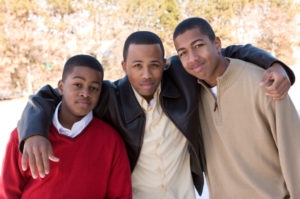28 Aug 2013 Four Words You Won’t Hear At MLK Commemoration: “Lower The Minimum Wage”
 Many civil rights activists have lamented the lack of jobs among many African Americans leading up to today’s set of speeches at the Lincoln Memorial commemorating the 50th Anniversary of Martin Luther King Jr.’s stirring oratory. There is much to be concerned about. African Americans have rates of unemployment higher than the national average and among African-American teens ages 16-19 the unemployment rate is a whopping 41.6%.
Many civil rights activists have lamented the lack of jobs among many African Americans leading up to today’s set of speeches at the Lincoln Memorial commemorating the 50th Anniversary of Martin Luther King Jr.’s stirring oratory. There is much to be concerned about. African Americans have rates of unemployment higher than the national average and among African-American teens ages 16-19 the unemployment rate is a whopping 41.6%.
Few things are more damaging to the employment prospects of low-skilled workers than increases in a minimum wage. A 2006 review of research on the minimum wage concluded,
among the papers we view as providing the most credible evidence, almost all point to negative employment effects, both for the United States as well as for many other countries. among the papers we view as providing the most credible evidence, almost all point to negative employment effects, both for the United States as well as for many other countries.
Other research finds that:
– A “$1.00 increase in the minimum wage would likely reduce employment or school enrollment among minority and inner-city teenagers, leaving more of them idle.”
-A ”10% increase in the minimum wage will decrease minority employment by 3.9%, with the majority of the burden falling on minority teenagers (6.6%). Although the size of the disemployment effects for African Americans is quite large -2.8% (and even larger for African-American teenagers, -8.4%), it is the statistically significant effect for Hispanics (-4.9%) that is driving these results. This supports earlier research which found that minimum wages have the largest negative effects on low-skilled employees, such as teens and minority teens.”
Such research also shows that groups that are better off economically, such as white teenagers, do better when the minimum wage is increased since their more skilled labor becomes more valuable to employers who must now pay higher wages.
Few policies would be better for people with few labor skills than reducing the price that has to be paid for their labor. This would give many young African Americans, especially teenagers, their first chance to grab a rung on the economic ladder, a first chance at gaining job skills that would benefit them greatly later in life.
Alas, lowering the minimum wage does not fit the liberal civil rights playbook, so not a single one of the speakers today will talk about it. You can count on that.



